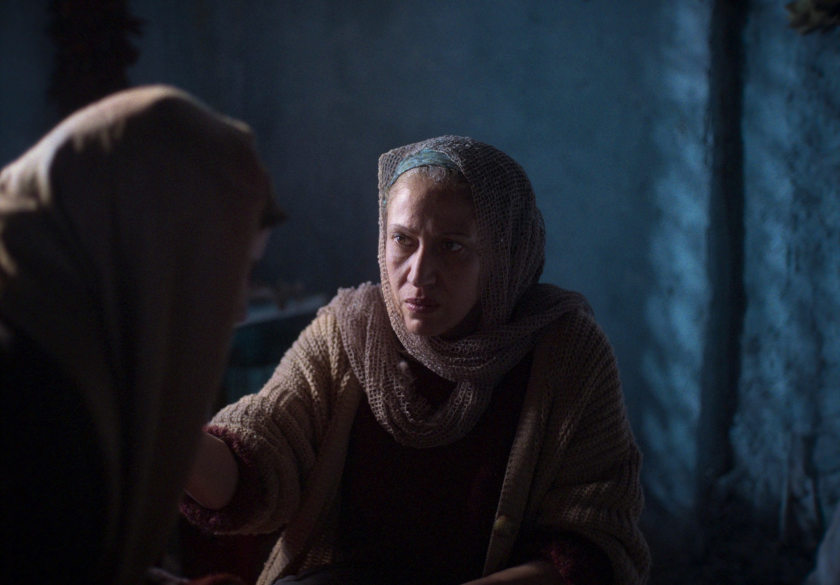Vassilis Kroustallis reviews the Tunisian drama in Berlinale competition, 'Who Do I Belong To'.
Feature newcomer (but already Oscar-nominated for her 'Brotherhood' short) Meryam Joobeur is a Tunisian filmmaker whose first feature 'Who Do I Belong To' reveals beautifully the intricacies in a country and family life plundered after the Tunisian Revolution and the surge of Tunisians to support ISIS terrorists in Syria. The film is a family affair for Aïcha (a heartfelt Salha Nasraoui), the only one to believe unconditionally in love and continue her family life despite all odds. When her two boys, Medhi (Malek Mechergui) and Amine (Chaker Mechergui) go to war, they are better considered dead by everyone -including their rationally-minded father Brahim (Mohamed Hassine Grayaa). Yet Aïcha, with her prophetic powers (dreams are seamlessly edited with narrative events as the film progresses) needs to have this leap of faith alive -and sustain her hope.
She seems to get her wish when Mehdi returns home with his pregnant Syrian (but non-Muslim) wife Reem (Dea Liane). Reem is wearing the niqab -leaving only a pair of eyes to penetrate the family, a fact that becomes a source of much healthy arguing among the family members, and a source of confusion for the youngest member of the family (and its third son), Adam (Rayen Mechergui). Two camps are immediately formed: religious and familial tolerance -especially in the light of the upcoming pregnancy combats the rationalized sentiment of the father who needs to remove himself from past affairs. Not to mention that Mehdi has to hide from the whole village itself.
It is at this point in the film that Meryam Joobeur opens up the narrative space to include not just an ethical and philosophical discourse (like the Oscar-nominated 'Four Daughters' by Kaouther Ben Hania does), but also embed its concerns on an actual quest and mysterious disappearances in the village itself. 'Who Do I Belong To' now becomes a full-scale investigation of right and wrongness, with characters like the policeman Bilal (Adam Bessa), who can give the equilibrium between the hidden secrets and the populist requests for revenge (no wonder he is both loved and the first to get the blame for). Joobeur and her cinematographer Vincent Gonneville don't stay inside, and there is no claustrophobic secretive atmosphere; they rather brilliantly portray the more grave events to follow as a short-scale Greek tragedy out in the open, in which both the living and the shadows compete for attention. (The film itself unfolds into three chapters: 'The Aftermath', 'A Shadow Emerges', and 'Awakening' that bring the metaphysical underlinings of the work into prominence).
It takes time to develop these threads, which makes the film's second act (despite its many intended false starts), subsequently drag. Aïcha, as the film's narrative center, is limited in a reaction mode as the plot evolves -which also weakens the film's force. The third act closes many open gaps (and effectively resolves the mystery of silent Reem). Yet the film is justly celebrated for its sentiment and authenticity rather than its plot evolution. Authenticity is key in the magnificent performances of experienced actors and newcomers (Malek and Rayen Mechergui), who invest the film with enough energy and pathos to keep it on the ground. Joobeur manages to bring big questions and contemporary concerns sadly resurfacing (women again being abused by men) to the same plate. Her metaphysical-ontological concerns are sound; her execution can be convoluted. Yet, overall, 'Who Do I Belong To' is never exotic and far from pathetic; it has this rare quality of presenting characters in the simplest of ways to immediately convince you of their truth.
'Who Do I Belong To' had its world premiere at the 74th Berlin Film Festival (Competition)
Vassilis Kroustallis
'Who Do I Belong To' had its world premiere at the 74th Berlin Film Festival (Competition)

